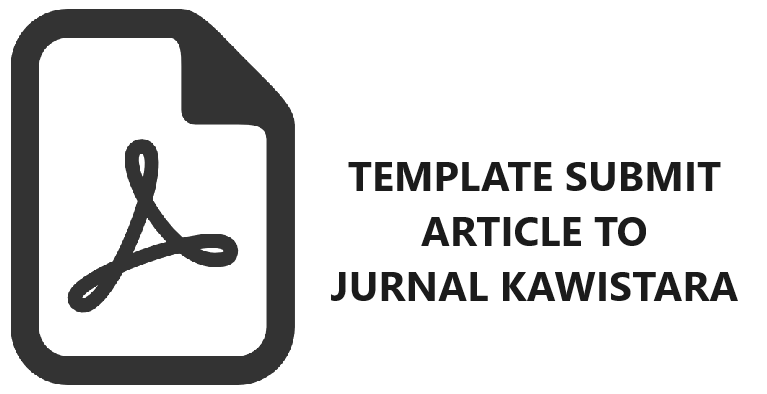CANDU DAN MILITER KETERLIBATAN BADAN-BADAN PERJUANGAN DALAM PERDAGANGAN CANDU DI JAWA PADA MASA REVOLUSI
Julianto Ibrahim(1*)
(1) Jurusan Sejarah Fakultas Ilmu Budaya Universitas Gadjah Mada
(*) Corresponding Author
Abstract
During revolution era, Indonesian government used and traded opium for struggle funds. This decision
was based on the fact that the social, economic and financial was shattered due to Japanese occupation.
Whereas the government should provide substantial funds to pay the war operations, employee
salaries and soldiers, buy weapons of war, and pay representatives abroad. This paper constitutes
as the result of historical studies, that is why it uses historical method and methodologies. Historical
method constitutes as a historian guidelines to find historical documents. Historian is like “handyman”
who collects historical sources such as archives and documents in “warehouses” archives and libraries.
When written sources are considered as not enough, then those will be held interviews with historical
actors involved directly or indirectly to the problem under study. Historical method constitutes a
works of historian from processing facts, explanations to the reconstruction of the results under study.
Methodology provides the framework of thinking as historian, that is why, it needs to pay attention
to the concepts and theories in preparing the events of the past. This study is based on the method
from Ernst Bernheim, that are heuristic, criticism, auffassung and darstellung. Indonesian government
fully managed and controlled the opium trade and circulation in Java. The management was led by
the Vice President Office assisted by two ministries, namely the Ministry of Finance and Ministry of
Defence Quartermaster Section. Under those two ministries, there was the Mayor Administrative Office
of Opium and Salt in Surakarta which coordinated major offices in several cities, especially in Kediri
and Yogyakarta. The Administrative Office of Opium and Salt in Kediri stored raw opium. Then, raw
opium was sent to processing factory in Wonosari and Beji Klaten. The cooked opium was sent to The
Administrative Office of Opium and Drug in Yogyakarta or The Mayor Administrative Office of Opium
and Salt in Surakarta. This office in Surakarta authorized to issue raw opium to the struggle agencies to
be sold to the territory of republic, occupied Netherlands area or smuggled abroad.
Keywords
References
Anshori, Irfan. 2013. Opium yang Memerdekakan Kita. Diedit oleh Ragil Koentjorodjati. <http://retakankata.com/2013/08/31/opium-yangmemerdekakan-kita/> (Diakses pada tanggal 3 April 2015).
Carey, Peter. 1984. “Changing Perception of the Chinese Communities in Central Java, 1755-1825”. Indonesia, Vol. 37,hal. 1-47.
Cheong, Yong Mun. 1997. Koneksi Indonesia di Singapura, 1945-1948, dalam Denyut Nadi Revolusi Indonesia,Diedit oleh Taufik Abdullah, Jakarta:Gramedia Pustaka Utama.
Darusman, Suryono. 1992. “Operation Meriam Bee” Penyelundupan Senjata Terbesar”, dalam Memoar Pejuang Republik Indonesia Seputar “Zaman Singapura” 1945-1950”,Diedit oleh Kustiniyati Mochtar.Jakarta: Gramedia Pustaka Utama.
Djoko. 1970. Perdagangan Tjandu di Indonesia pada Abad ke-19. Skripsi. Jurusan sejarah Fakultas Sastra dan Kebudayaan UGM.
Ibrahim, Julianto. 2013. Opium dan Revolusi:Penggunaan dan Perdagangan Candu di Surakarta Pada Masa revolusi, 1945-1950, Yogyakarta: Pustaka Pelajar.
________. 2004. “Politik Ekonomi Pendudukan Jepang di Surakarta”,Humaniora, 16 (1).
Kahin, George Mc.Turnan. 1995. Nasionalisme dan Revolusi Indonesia: Refleksi Pergumulan Lahirnya Republik, Surakarta: UNS Press.
Kamajaya, Karkono. 1993. Revolusi di Surakarta,Temu Ilmiah di Balai Kajian Sejarah dan Nilai Tradisional, Yogyakarta.
Kartodirdjo, Sartono. 1981. “Wajah Revolusi Indonesia Dipandang dari Perspektifme Struktural”, Prisma, 8.
Mochtar, Sofyan. 1992. Kisah Pendirian “Antara Singapura” Cabang Kantor Berita Indonesia yang Pertama di Luar Negeri, dalam Memoar Pejuang Republik Indonesia Seputar “Zaman Singapura” 1945-1950”, Diedit oleh Kustiniyati Mochtar. Jakarta:Gramedia Pustaka Utama.
Rush, James R. 2000. Opium to Java: Jawa dalam Cengkeraman Bandar-Bandar Opium Cina, Indonesia Kolonial 1860 – 1910,Yogyakarta: Mata Bangsa.
Salim, Ferdi. 1992. Kisah Organisasi Speedboat di Awal Kemerdekaan Republik Indonesia, dalam Memoar Pejuang Republik Indonesia Seputar “Zaman Singapura” 1945-1950”, Diedit oleh Kustiniyati Mochtar, Jakarta:Gramedia Pustaka Utama.
Syahrir, Siti Wahyuni Sutan. 1992. Peran Singapura pada Tahun-Tahun Pertama Kemerdekaan Republik Indonesia:Sekelumit Kenangan, dalam Memoar Pejuang Republik Indonesia Seputar “Zaman Singapura” 1945-1950”, Diedit oleh Kustiniyati Mochtar. Jakarta: Gramedia Pustaka Utama.
Yahya Muhaimin. 1971. Perkembangan Militer dalam Politik di Indonesia, 1945-1966, Yogyakarta: Gadjah Mada University Press.
Zed, Mestika. 1997. “Ekonomi Indonesia Pada Masa Revolusi: Mencari Dana Perjuangan (1945-1950)”, dalam Denyut Nadi Revolusi Indonesia,Diedit oleh Taufik Abdullah, Jakarta:Gramedia Pustaka Utama.
Article Metrics
Refbacks
- There are currently no refbacks.
Copyright (c) 2016 Julianto Ibrahim

This work is licensed under a Creative Commons Attribution-ShareAlike 4.0 International License.
Jurnal Kawistara is published by the Graduate School, Universitas Gadjah Mada.











